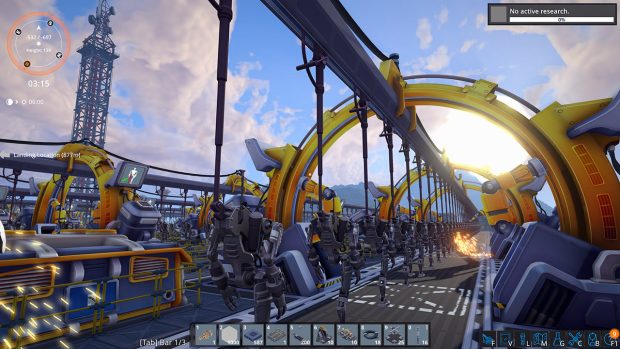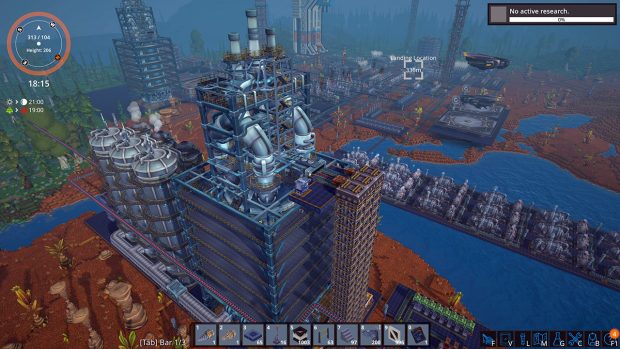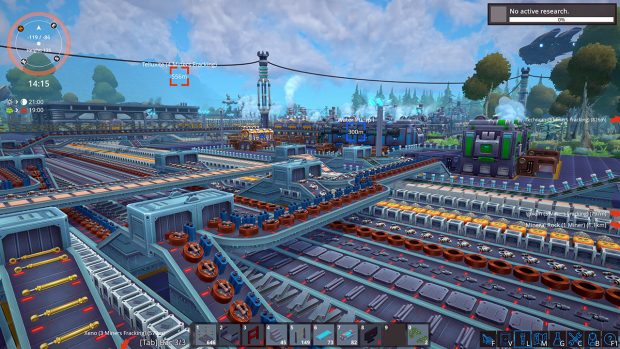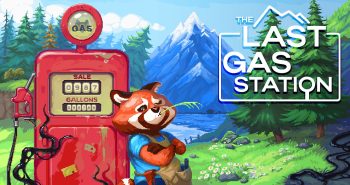In a world of factory building simulators, Foundry emerges as a voxel-based contender with a unique charm and ambitious vision. Developed by Channel 3 Entertainment and published by Paradox Interactive, the game invites players to embark on a journey of automated production in an infinite, procedurally generated landscape. While still in Early Access, Foundry offers a tantalizing glimpse into a potential factory-building haven.
One of Foundry’s greatest strengths lies in its unparalleled freedom. The infinite voxel world provides a vast canvas for players to design and construct their factory empire. Whether you prefer sprawling, intricate designs or compact, efficient layouts, the game accommodates your creative vision. The ability to shape the terrain and mine resources further enhances the feeling of control and ownership over your industrial domain.
Automation is at the heart of Foundry, and the game delivers a satisfying array of tools to streamline production. Conveyor belts, pipes, and a variety of machines can be interconnected to create intricate systems that hum with efficiency. Watching raw materials transform into finished products through a network of your own design is incredibly rewarding. The game also encourages experimentation and optimization, as you constantly strive to improve your factory’s output.
The visuals in Foundry are simple yet charming. The voxel aesthetic, while not groundbreaking, lends the game a distinct and endearing look. The procedurally generated environments offer a pleasing variety of biomes and landscapes to explore, and the colorful machinery adds a touch of personality to your creations. The soundtrack, while limited, complements the gameplay with its upbeat and futuristic tunes.
However, Foundry is not without its flaws. The game’s early access status is evident in its lack of polish. The user interface, while functional, can be cumbersome and unintuitive at times. Some mechanics, such as power management, feel underdeveloped and lack depth. Additionally, the absence of a clear progression system or overarching goals can leave players feeling directionless after the initial excitement of building wears off.
Furthermore, the multiplayer component, while promising, is currently plagued by technical issues and a lack of content. While playing with friends can be enjoyable, the limited scope of collaboration and the absence of dedicated multiplayer features detract from the overall experience.
Despite these shortcomings, Foundry shows immense potential. The developers have been actively engaging with the community, addressing feedback, and implementing improvements. The roadmap for future updates includes new features, mechanics, and quality-of-life enhancements that promise to elevate the game to new heights.
In conclusion, Foundry is a diamond in the rough. Its voxel-based world, creative freedom, and automation mechanics offer a unique and engaging factory-building experience. While the game is still in its early stages, its potential is undeniable. With continued development and refinement, Foundry could very well become a must-play for fans of the genre.








